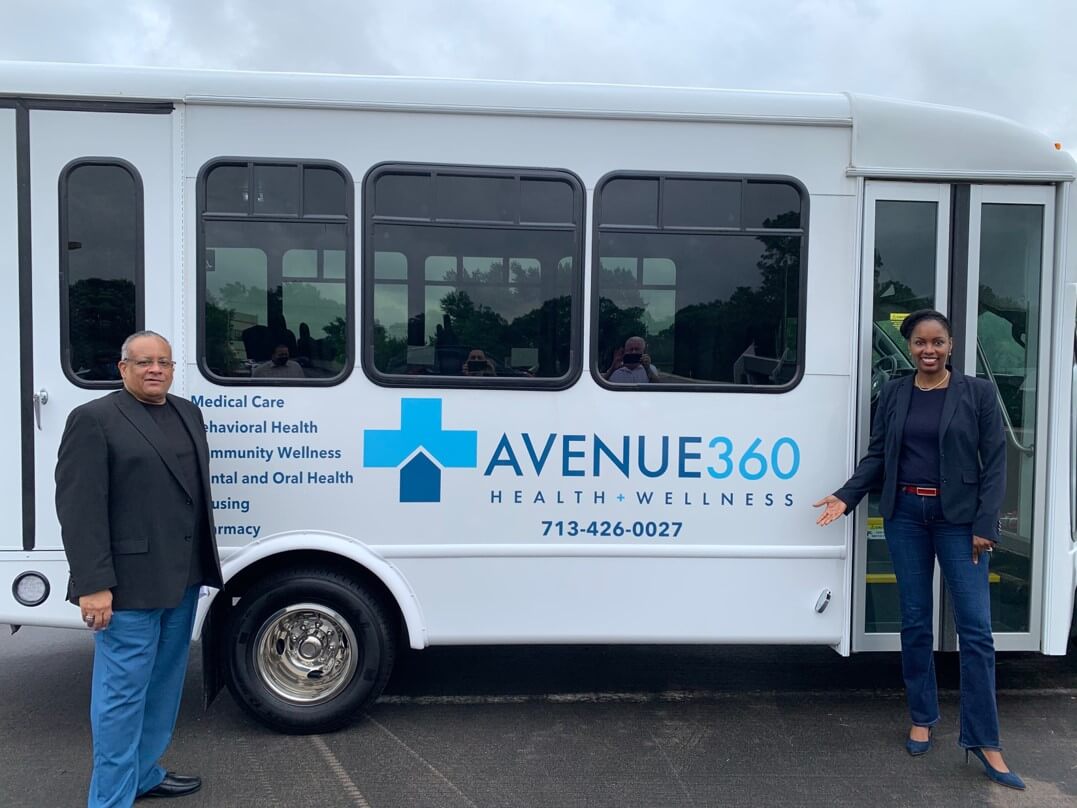Health Equity
Addressing Social Determinants of Health
Social drivers of health, also known as social determinants of health, are conditions in the places where people live, learn, work, and play that affect a wide range of health and quality-of-life risks and outcomes.
Examples of social determinants of health include:
- Income and social protection
- Access to Quality Education
- Unemployment and job insecurity
- Working life conditions
- Transportation Issues
- Food insecurity
- Housing, basic amenities and the environment
- Early childhood development
- Social inclusion and non-discrimination
As health equity advocates, we provide help with access to food, income/benefits, education, mental health services, and recovery services. In 2023 alone, we helped coordinate stable housing to more than 520 individuals.
We partner to remove barriers to healthcare and gather community feedback to improve health care. We help to address health disparities in our community and all programs and services are offered on a sliding fee scale. No one is turned away for inability to pay.

Below, we have provided a snapshot of how we assist vulnerable members within the community.
Community Health Workers
With compassion at the core of what we do, we work with community partners to increase access to comprehensive services that complement basic health care, for the most vulnerable uninsured and underinsured population throughout greater Houston.
Community Health Workers (CHW) act as liaisons and provide cultural mediation between health care, social services, and the community. CHWs are trusted members of the community and have a close understanding of the ethnicity, language, socio-economic status, and life experiences of the community in which they serve.
Our CHWs assist people to gain access to needed services and builds individual, community, and system capacity. They help increase health knowledge and self-sufficiency through a range of activities such as outreach, patient navigation, and follow-up, community health education and information, informal counseling, social support, advocacy, and participation in clinical research.
- Our Community Health Workers build relationships that focus on the overall health and wellness of individuals within vulnerable populations throughout Houston.
- We assess, develop strategies, and provide support for gaps in overall health and wellness within non-traditional settings.
- Our Community Health Workers team up with community-based partners including educational institutions and school districts, such as University of Houston, Texas Southern University, Houston Community College and Lonestar College, as well as local WIC offices, area YMCAs, places of worship, shelters, and local law enforcement offices, as well as apartment communities.
Health Advocacy
Our approach to health extends beyond our clinics. Our dedicated team empowers communities throughout greater Houston to improve health outcomes, address social determinants of health, and establish partnerships that focus on education, prevention, and health & wellness to build healthier and stronger communities.
- We help connect those in need with services for individuals and families living in places not meant for human habitation (streets, freeway underpasses, cars, encampments, etc.) in Houston/Harris County. Our team is embedded in the community by participating in food distribution events and attending cooperative community meetings.
- We work to identify and establish collaborations with community organizations and partners, develop and host education sessions in the community on topics such as healthy eating habits, women’s health, sexual health, and cardiovascular health, and provide free health screenings such as blood pressure, glucose, HIV, Hepatitis C, and Syphilis testing.
Assisting the Unhoused
In addition to ensuring the accessibility of quality affordable health care, we continue our longtime focus on assisting with housing solutions within Houston. We understand that adequate housing is a key aspect of environmental and social factors that impact individual and community health.
Permanent Supportive Housing
Permanent Supportive Housing (PSH) programs are designed to promote residential stability and positive health outcomes by offering indefinite stay housing options to individuals and families who are experiencing homelessness and where at least one member of the household has a documented disability. Services include rent subsidies, case management, transportation assistance, and advocacy.
To determine if you are eligible for Permanent Supportive Housing, you must be assessed at one of Houston’s designated Coordinated Access sites. Information can be obtained at Houston’s Coalition for the Homeless www.homelesshouston.org.
SOAR Case Management: Assisting the Unhoused
Our case management program offers support to unhoused adults with mental illness, physical disability and/or substance abuse issues for the purpose of expediting the SSDI/SSI and medical benefits application process.
- We employ SOAR case managers who serve as appointed representatives before the Social Security Administration for clients who are homeless and disabled, using the SOAR process for filing disability claims.
- To determine if you are eligible for SOAR services you must be assessed at one of Houston’s designated Coordinated Access sites. More can be found at www.homelesshouston.org.